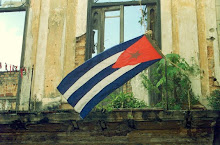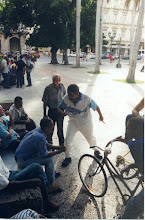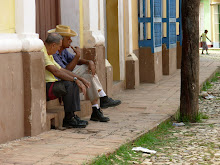Today’s announcement about prisoner releases is a very positive development. Here’s hoping that the releases discussed in the statement from the Archdiocese of Havana take place as soon as possible.
The result, if all comes to fruition, will be the release of the remainder of the 75 arrested and jailed, unjustly in my opinion, in the spring of 2003. They are a diverse group that included nearly all the principal activists behind the Varela Project, the pro-reform petition drive led by Oswaldo Paya and the Christian Liberation Movement.
If those releases occur, there would be by my quick count only about a dozen left on Amnesty International’s list of prisoners of conscience in
I’m told by someone close to the process that the releases are not contingent on the prisoners leaving the country – that “may leave the country” means what it says, and doesn’t mean “must.” In many cases over the years, that condition has indeed been imposed, trading imprisonment for forced departure – but apparently not in this case. And several of the 75 that were released in recent years – e.g. Hector Palacios, Oscar Espinosa Chepe – have remained in
For a long time, it has been said that what is needed is not a dialogue between
Now there’s a new feature on
It should also count as progress that the process is beginning to produce results. No one can argue that it is solving the totality of
But it is beginning to produce results where sanctions, distance, rhetoric, and regime-change schemes of all kinds have not.
Remarkably, this statement from





No comments:
Post a Comment